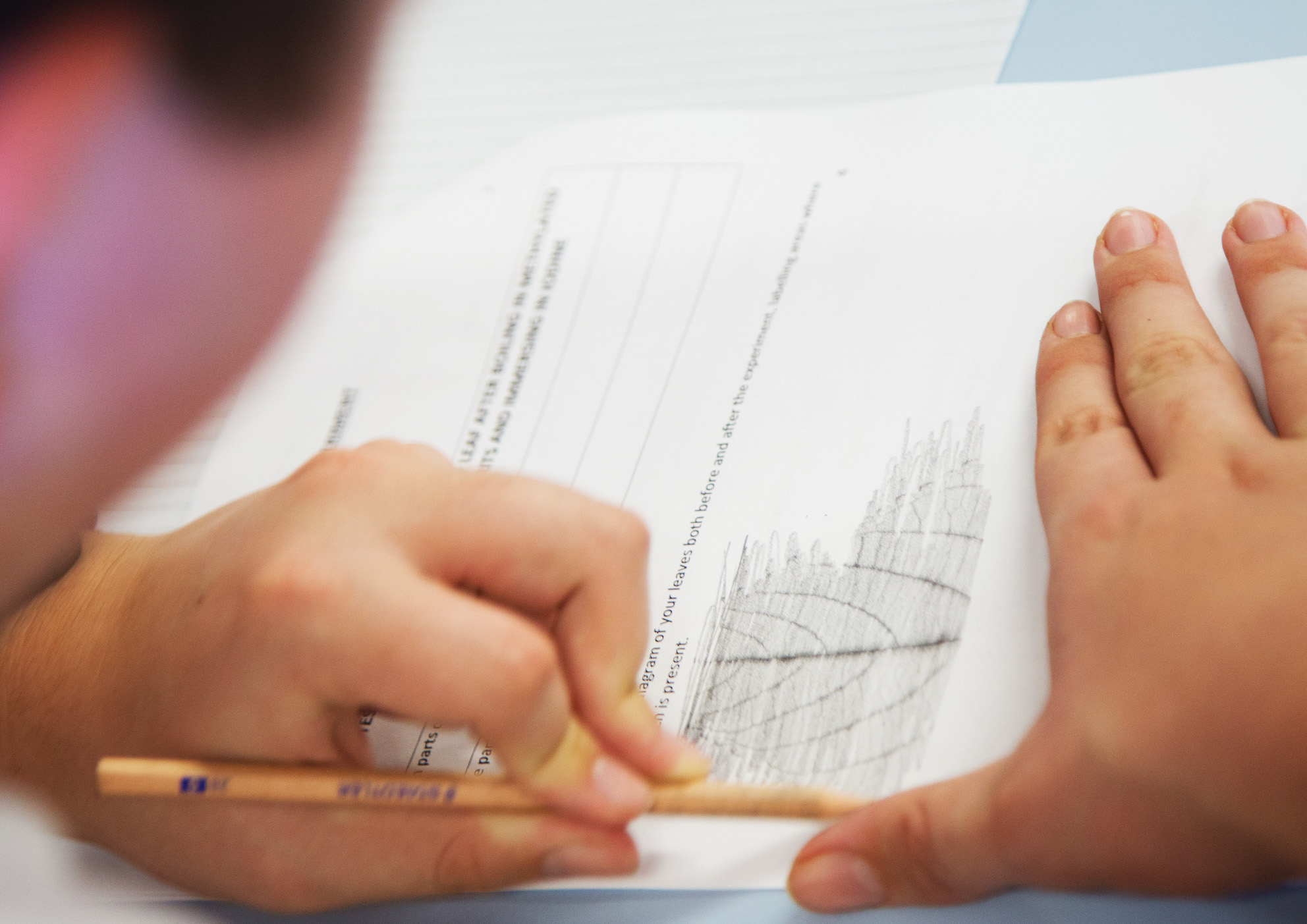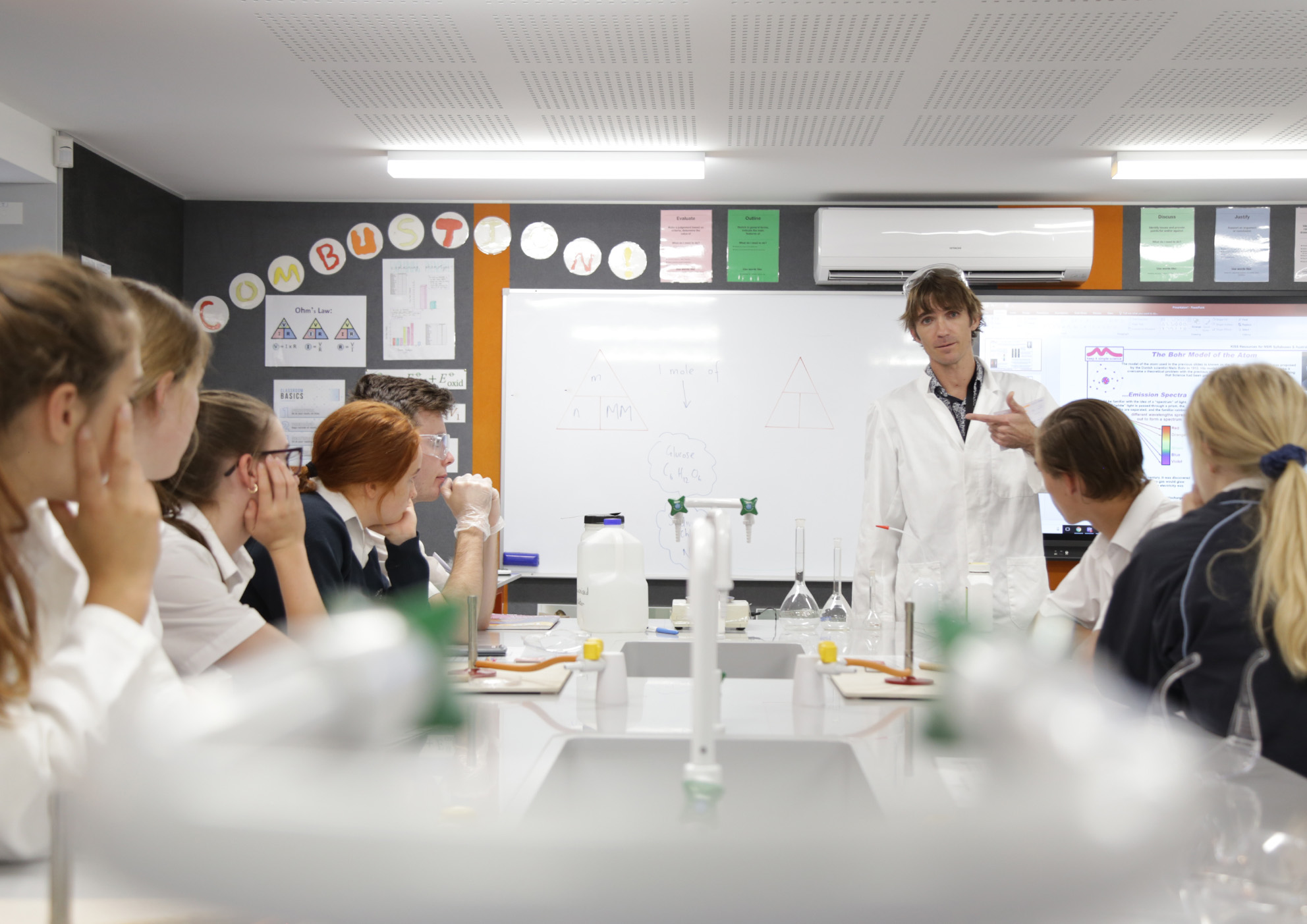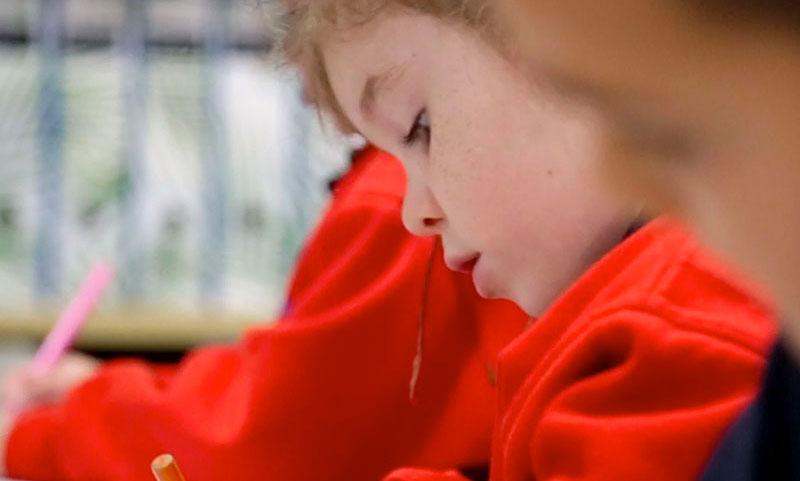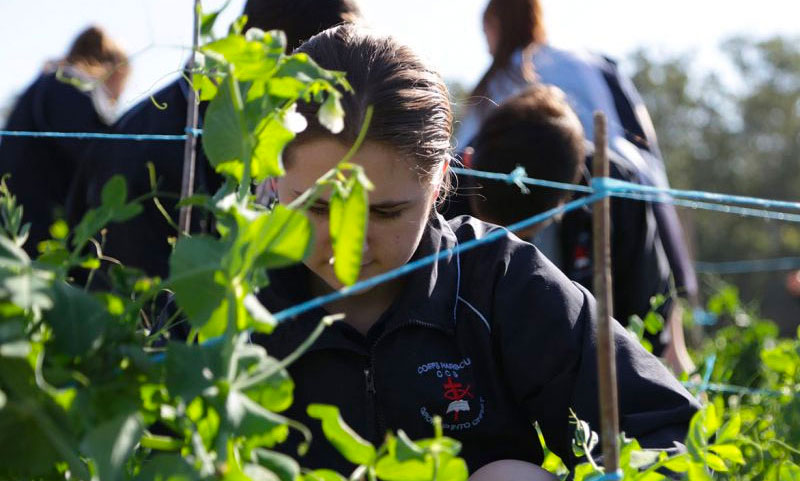Science
Science is a mandatory course that is studied substantially in each of years 7–10 with at least 400 hours to be completed by the end of Stage 5. Satisfactory completion of this course will be recorded, with a grade, on the Record of School Achievement (RoSA).
The study of science enables students to develop a positive self-concept as learners and gain confidence in, and enjoyment from, their learning.
Through active participation in challenging and engaging experiences, they become self-motivated, independent learners. Their understanding of science and its social and cultural contexts provides a basis for students to make reasoned evidence-based future choices and ethical decisions, and to engage in finding innovative solutions to science-related personal, social and global issues, including sustainable futures.



More About Science
Students will learn about
Students will learn to
Throughout Years 9 and 10 students apply models, theories and laws to explain phenomena and situations involving energy, force and motion. They examine the changing ideas about the structure of the Earth, origins of the universe and the diversity of life on the Earth to illustrate how models, theories and laws are refined over time by the scientific community as new evidence becomes available.
In addition, students learn how scientific understanding has contributed to knowledge about global patterns of geological activity and interactions between global systems. They also analyse interactions between components and processes within biological systems and investigate the organisation of the periodic table and describe factors that influence the rate of chemical reactions.
Course requirements
Got a Question?
Fill out the form below and we will be in touch.




